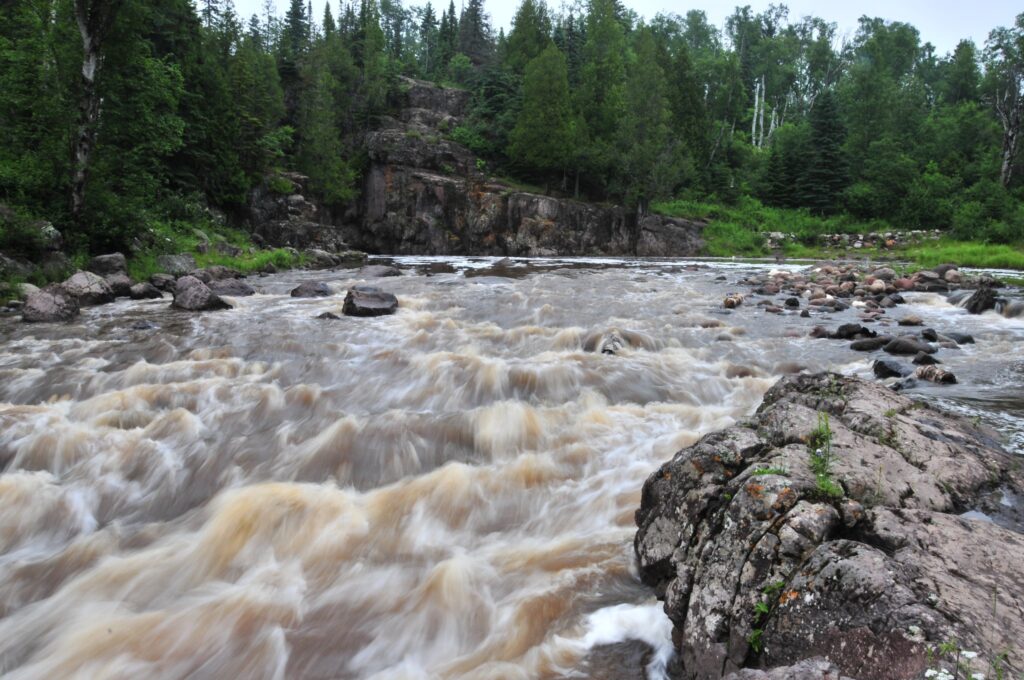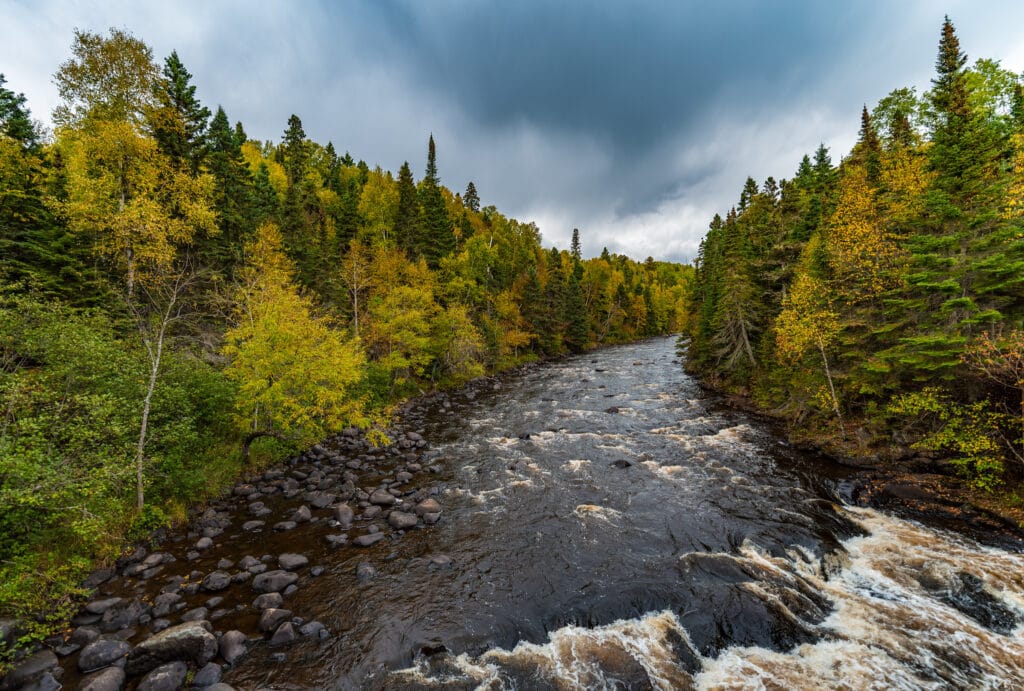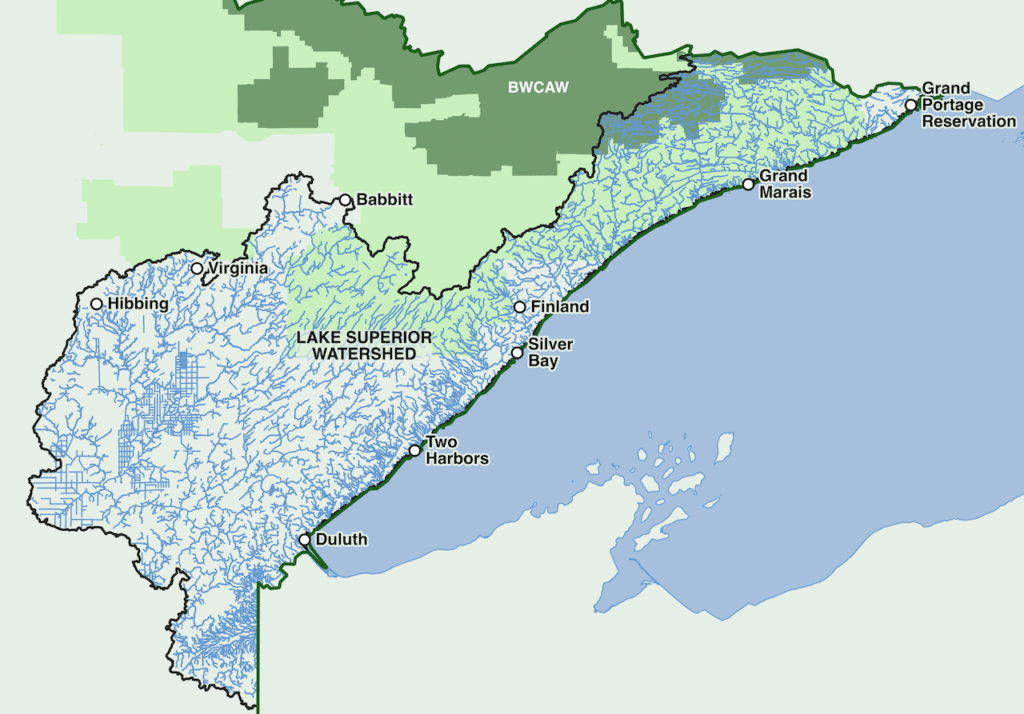
Landowners along Minnesota rivers that flow into Lake Superior are invited to apply for a conservation easement program recently launched by the Minnesota Land Trust. The North Shore Coldwater Fisheries Program seeks to ensure lands along rivers remain undeveloped in perpetuity to preserve the region’s ecological health and cherished fish populations.
The effort is part of a larger initiative to keep the North Shore’s rivers cold and clean. The Minnesota Land Trust, The Nature Conservancy, Trout Unlimited, and other groups have also been focused on planting trees along the rivers to provide the shade necessary for cool water temperatures in summer.
Because the coldwater rivers and streams of northern Minnesota are mostly fed by surface water, rather than groundwater springs, preserving riparian forests and wetlands in the headwaters is important to make sure trout and other coldwater creatures can survive.
Conservation easements provide a unique chance to protect private lands that are critical to the watershed’s health. With support from the state, the new program seeks to permanently protect as much as 1,080 acres of forest and about three miles of shoreline.
Creative conservation

Easements allow land to stay in private ownership, while requiring the owner to manage and use the land within the terms of the easement. Usually this means no additional buildings or structures, and management for natural habitat health. Allowing public access is not required. The protection is attached to the land and restrictions apply to future owners, too.
“Each conservation easement completed by the Minnesota Land Trust is individually crafted to reflect the special characteristics of the land and its uses,” the group says. “However, certain restrictions are required to protect the natural habitat and associated species.”
Because easements can lower the financial value of the property for resale, the Land Trust has dedicated funds to compensate landowners. Also, easement donations can usually be deducted from federal taxes.
All easement sellers in the North Shore Coldwater Fisheries Program will receive a habitat management plan, and in some cases, support with restoration work. Applications will be considered based on a scientific framework targeting high-priority rivers and achieving the most possible impact with the available dollars.
The “Ecological Limits of Hydrologic Alteration (ELOHA)” framework recommends river conservation efforts focus on ensuring enough water continues to flow in streams threatened by climate and land use change.
“Freshwater scientists around the world acknowledge a crisis in biodiversity loss and diminished ecosystem function in streams, rivers, wetlands and lakes,” The Nature Conservancy said in 2012. “One main culprit in this decline is human-caused change in the historical magnitude, frequency and timing of river flows that have supported key ecological processes and native species in diverse aquatic systems.”
The ELOHA framework was intended to help conservation planners quickly develop better understanding of the connection between surface water and ecosystems in a particular region. It was created because the ability of scientists to study such connections on a river-by-river basis have become overwhelmed by the needs and investments required by such projects.
Details

The easement program is funded in part by the taxpayers of Minnesota through the Outdoor Heritage Fund, provided by the 2008 Clean Water, Land and Legacy Amendment. The effort was awarded $1.8 million beginning last year.
Applications for the easement program will be assessed on their ecological benefit, and the requested compensation. The Minnesota Land Trust can pay up to the full appraised amount, but not higher. Easement donations may be tax deductible.
Properties must be located in the Minnesota portion of the Lake Superior watershed, and at least 40 acres in size.
Applications are due by July 31, 2021. Late applications may be considered depending on the availability of funding. Landowners along the North Shore who have streams running through their land can find out more at mnland.org/nscf or by contacting Bill Penning at 651-262-6403 or bpenning@mnland.org.

